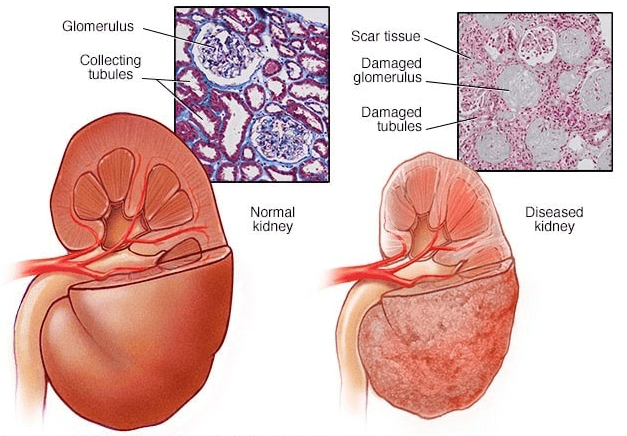A nurse is collecting data from a client who is 12 hr postoperative following intestinal surgery. Which of the following findings should the nurse report to the charge nurse prior to client ambulation?
Oxygen saturation 90%
Respiratory rate 20/min
Apical pulse rate 88/min
Oral temperature 37.6° C (99.7° F)
The Correct Answer is A
An oxygen saturation level of 90% is below the normal range and indicates inadequate oxygenation. This finding could indicate respiratory compromise or impaired lung function, which may require further assessment and intervention before allowing the client to ambulate.
The respiratory rate of 20 breaths per minute, apical pulse rate of 88 beats per minute, and oral temperature of 37.6°C (99.7°F) are within the expected range and do not raise immediate concerns that require reporting to the charge nurse prior to ambulation.
However, the nurse should continue to monitor these vital signs during and after ambulation to ensure stability.
Nursing Test Bank
Naxlex Comprehensive Predictor Exams
Related Questions
Correct Answer is A
Explanation
Radiation therapy can affect the taste buds, leading to a diminished or altered sense of taste.
This can result in a reduced appetite or changes in food preferences.
Loose stools and bladder infection are not commonly associated with external radiation for throat cancer. Loose stools can be a side effect of radiation therapy to the abdomen or pelvis, but it is not typically seen in throat cancer treatment.
Bladder infection is not directly related to radiation therapy, but it can occur as a complication in some individuals undergoing cancer treatment, especially if they have a compromised immune system.
Increased appetite is also not a typical finding associated with radiation therapy, as it may cause side effects such as nausea or changes in taste, which can decrease appetite
Correct Answer is A
Explanation
a. Support the client's decision to stop the treatment.
As a nurse, it is important to respect the client's autonomy and right to make decisions about their own care. The decision to stop dialysis treatment is a personal one and should be respected by the healthcare team. The nurse should support the client's decision and provide information and resources to help the client manage symptoms and maintain comfort during the end-of-life process.
It is not appropriate for the nurse to suggest that the client discuss the decision with her family or to discuss alternative treatment methods, as these decisions should be made by the client in conjunction with their healthcare provider.
It may be appropriate to offer spiritual or emotional support to the client, but this should be based on the client's preferences and not imposed upon them by the healthcare team.

Whether you are a student looking to ace your exams or a practicing nurse seeking to enhance your expertise , our nursing education contents will empower you with the confidence and competence to make a difference in the lives of patients and become a respected leader in the healthcare field.
Visit Naxlex, invest in your future and unlock endless possibilities with our unparalleled nursing education contents today
Report Wrong Answer on the Current Question
Do you disagree with the answer? If yes, what is your expected answer? Explain.
Kindly be descriptive with the issue you are facing.
